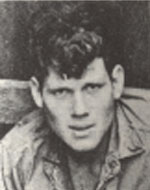Yehonatan, son of Nechama and Shlomo, was born on 23.4.1947 in Kibbutz Beit Hashita opposite the Gilboa Mountains, where he was given a second name in memory of his great-grandfather, Rabbi Yosef Eshelbacher zt “l. With his family Jonathan moved to Pardes Hannah and later to the Degania Aleph group, where he grew up and was educated. Jonathan is a shy and sensitive child, who grew up in struggles with himself, at home and at school. As an adolescent, he had become part of the agricultural work, and he loved the patch of grass he had tended. Agriculture was a part of itself and was associated with a whole tradition of loyalty and love to the field, the valley, the mountains, the whole country and its past. He traveled extensively and participated in archeological excavations at Masada and the Timna crater. His love for life was palpable, he wanted to experience a lot and all in his five senses, he was silent and withdrawn, but with great sensitivity he understood and understood the other’s Lev. Loved by his friends, good bad, devoted and ready to best fulfill every task and task assigned to him. Pleasant in society and interesting conversationalist, but chooses to shut up the things that are really important. Jonathan was drafted into the IDF in May 1965 and volunteered for the Paratroopers Brigade, but after completing an officers’ course he was assigned as a platoon commander in an armored unit. He was not rigidly disciplined, and he was foreign to him, but he was strict on operational matters, loved by his subordinates and his fellow commanders. In the opinion of his commanders it was stated: “A responsible, loyal officer tries very hard to succeed in the tasks incumbent on him, devoted, honest and disciplined, independent and entrepreneurial.” In the Six-Day War, the burglar from Rafah – El-Arish was at the entrance to the Suez Canal. After he was discharged from regular service, Jonathan returned to Degania for agricultural work, where he combined educational work as a counselor for a group of children. Where he expressed his ability to create a good spirit of friendship and understanding with the children. He spent two years in Kibbutz Degania, and after some hesitation, out of a desire to express himself and to exhaust his ability in an independent farm in the moshav, he decided to leave the kibbutz. In September 1972 he married Josepha and together they prepared to settle in Moshav Arugot. At that time, Jonathan accepted the establishment of a farm to raise turkeys for breeding, near Moshav Hatzav in the south. With great devotion, he spent days and nights learning the problems of the branch, which was foreign to him until then, and laid the foundations for the farm, which from its inception was exemplary and exemplary – but to see that his work was not completed. With the yelling of the Yom Kippur sirens, Jonathan left his home. On October 8, 1973, he headed the tanks for the braking battle. He left with three tanks on the banks of the Canal near the Purden Bridge and from there he did not return. Yehonatan was brought for burial in the cemetery in Degania Aleph. In his farewell, his commander said: “He was not a man of war, nor was he a man of armies, but when he was called upon to stop the enemy forces, he carried out his mission with faith and courage and made sure to be at the head of the assailants.” As “Keshet Yehonatan did not retreat back.”
